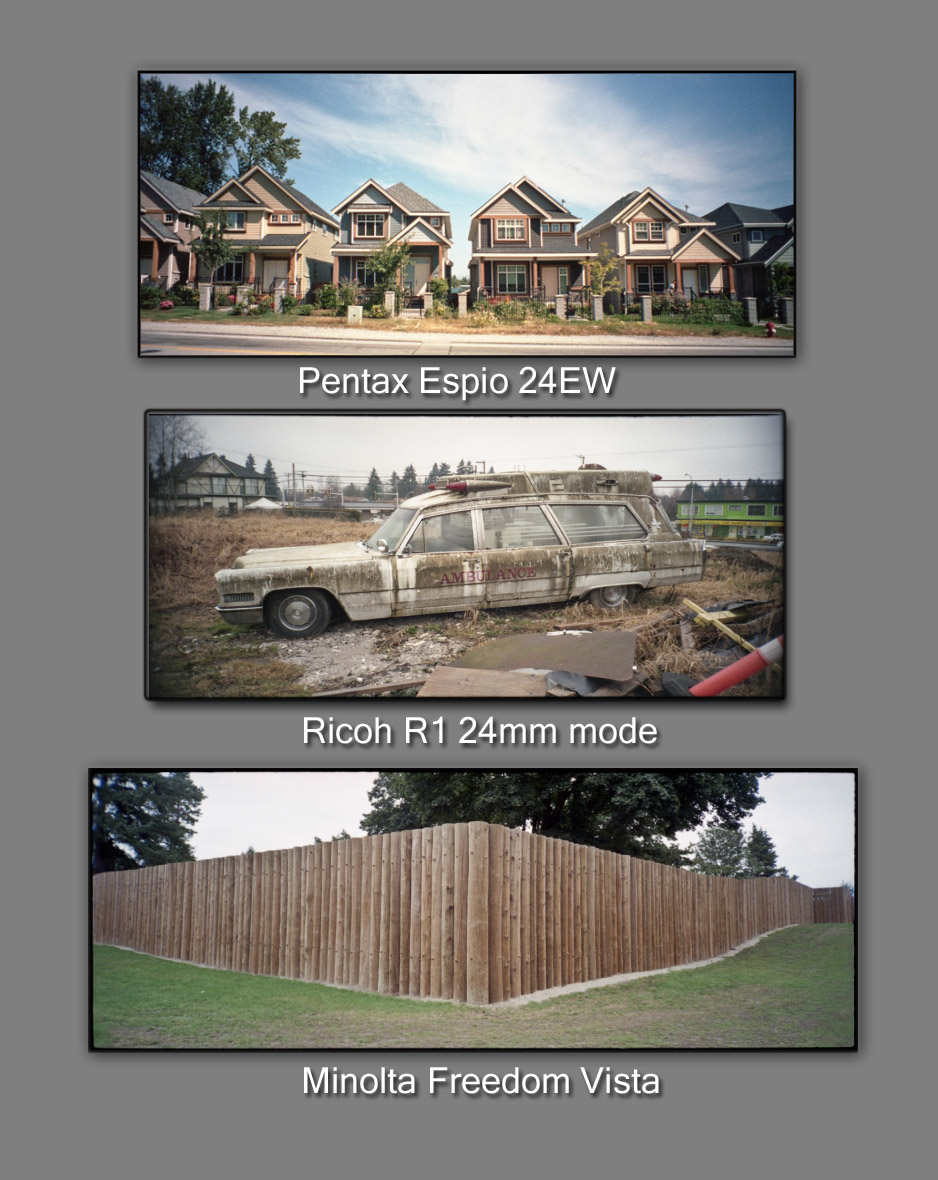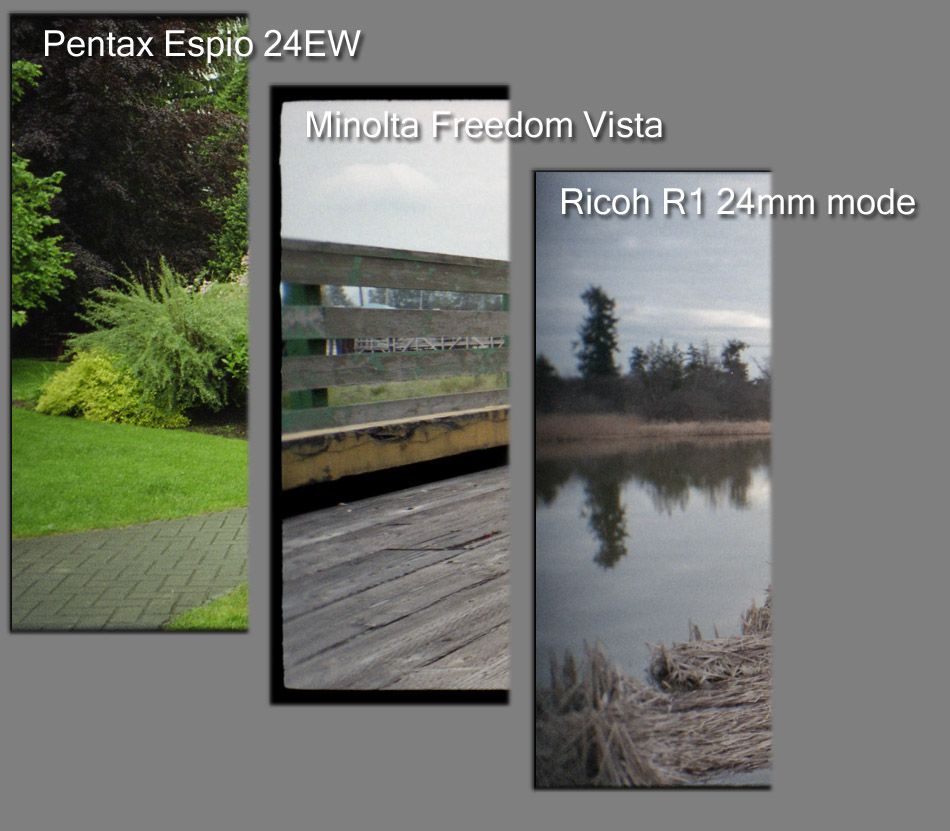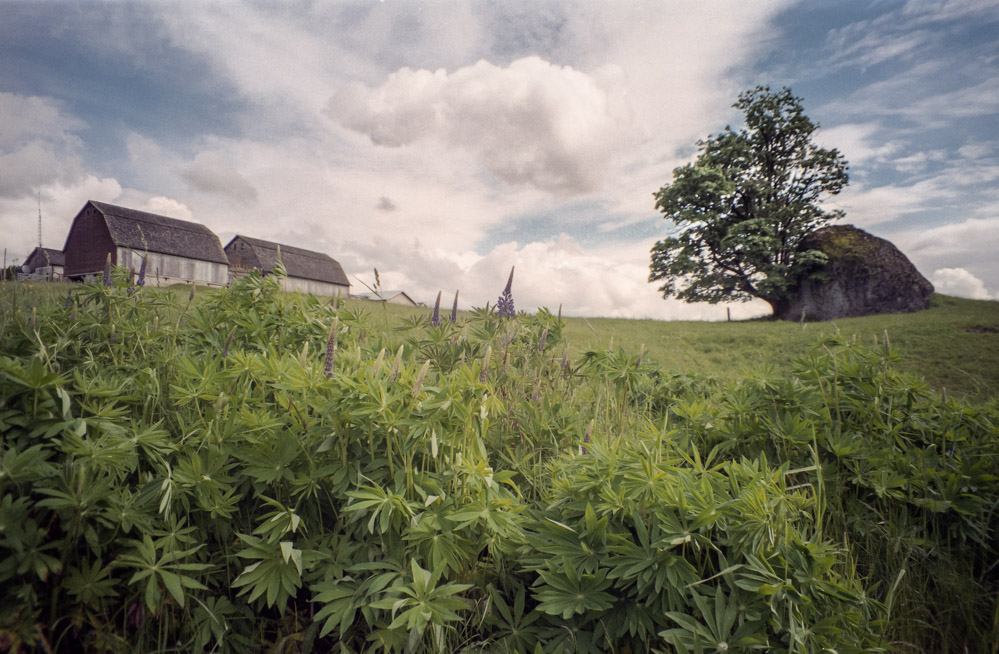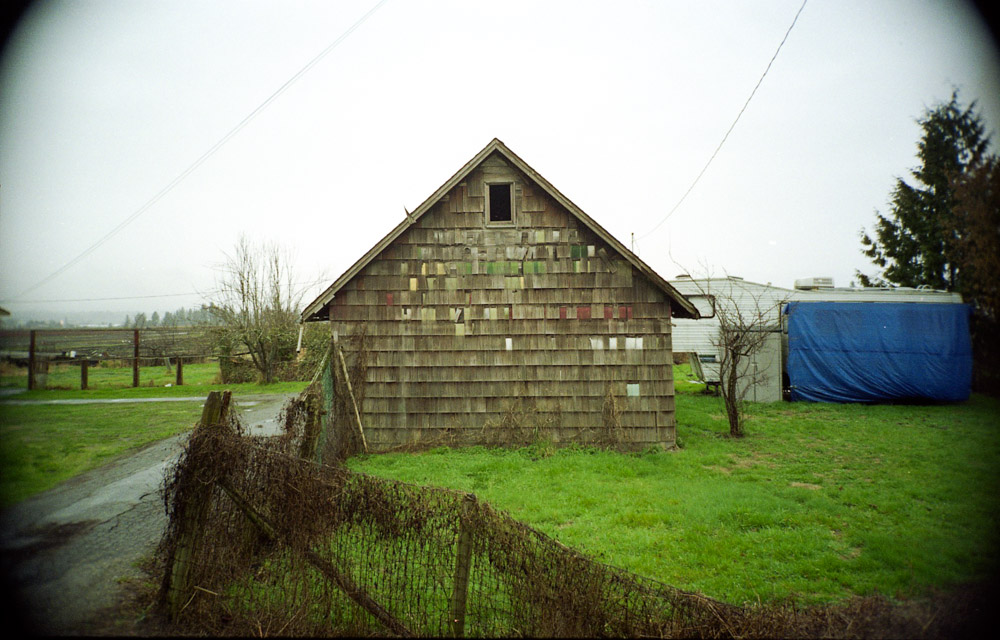Apr
17
2016

The Ricoh R1 is much like two cameras in one as I’ve stated previously. The 30mm lens is a fantastic performer and the 24mm panoramic has a toy camera aesthetic. The decision to use Adox color implosion film is more in keeping with the latter but I like the unmistakable ‘filmness’ either way. The gallery that follows is a little of each and for the moment it ‘s the 24mm panoramic film camera I use as my Minolta Freedom Vista was stolen from my vehicle. I suppose the joke is somewhat on them as there isn’t a big market for film cameras let alone ones that only take panoramic shots. It’s more likely to end up in a dumpster than to take another picture but I hope it does get used even if it isn’t by me. In the meantime the R1 is one of the best point and shoots I have so I turn to it often.
1 comment | tags: adox, color implosion, film, panoramic, Ricoh | posted in Cameras, Photography
Nov
12
2014

Freedom from the enslaving 4×3 images or even the oppressive 16×9. Only this Minolta will set you free with its 27×10 aspect ratio. Within its images you will be able to realize your dreams of wide horizons and grand vistas oh the vistas you will see. Perhaps I’m overstating it slightly but composing for what is nearly a 3×1 aspect ratio is certainly different. You really need to move away from the traditional notions of composition and divide the image area in new ways. It’s not always easy to fill the frame with interest but it’s also not a good idea compositionally to have large areas with nothing in them as they tend to appear very static. My Minolta Vista is looking pretty beat-up but it works perfectly.
3 comments | tags: panoramic | posted in Cameras, Photography
Mar
13
2014
Sometimes a scene warrants a wide-angle shot so which ‘vintage’ film point and shoot provides the best quality? This is a question that has been burning up the internet like an asbestos glove. The three cameras compared here are ones that I happen to have. There may be others out there, as well as wider ones. The Freedom Vista is strictly panoramic while the Ricoh R1 can be modified to work as a full frame 24mm lens but there are reasons that may not be worth it. I will cover that later. The Pentax 24EW though can shoot a full 35mm frame at 24mm not just a panoramic. As for the speed of the different lenses at 24mm the Pentax is f4.9 the Minolta f4.5 and the Ricoh f8.

All three provide a reasonable image at the center of the frame but its a different story near the edge, that’s what separates them.
So looking at the edges of the frames you can see that the Pentax performs the best followed by the Minolta and then the Ricoh

So it’s the Pentax 24EW for the optical gold medal but it doesn’t end there as I said before the 24EW isn’t limited to panoramic mode but produces decent 24mm full frame images

Earlier I mentioned that the R1 can be modified to take full 35mm film images. The way to achieve this is by disabling the panoramic mask from engaging. I have a Ricoh R1s that I modified to take 24mm images in this way (After I realized it already had focus problems) but this is the sort of vingetting you can expect with that. It just was never designed to cover the entire 35mm frame and it also results in a very slow aperture of f8.

So for the pros of the different cameras :
The Pentax 24EW is the most versatile with the best image quality and can take a full image at 24mm
The Minolta Freedom Vista has the best viewfinder for composing panoramic images and has decent image quality
The Ricoh despite not being very good at 24mm is exceptional at its native 30mm focal length (that’s right it uses a second set of lens elements to achieve the 24mm)
So in the end all three are interesting to use for different reasons.
no comments | tags: film, panoramic, Photography | posted in Cameras, Photography























































